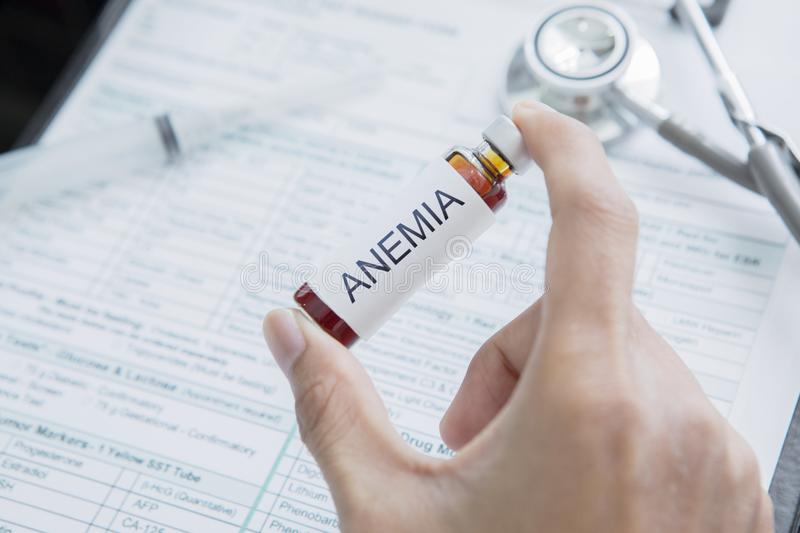Do you ever feel lethargic? Do you ever feel dizzy? When you get evaluated, and your doctor tells you that you have got anemia- a condition in which your blood lacks enough healthy red blood cells.
Before we talk about anything else, you should know something about the constitution of blood.
Your blood contains plasma and formed elements. The plasma is the liquid content of the blood. And the formed elements consist of red blood cells, white blood cells, and platelets. Each of them performs a designated function. You should have them in an optimal amount. If they are more or lower than normal limits, it can be due to some health condition, potentially a life-threatening condition in most cases.
Your red blood cells are of a discoid shape that contains hemoglobin on them. The oxygen binds with the hemoglobin and helps take oxygen to various parts of your body. When your body does not have enough red blood cells, eventually your organs do not get enough oxygen. It is the reason which causes dizziness and lightheadedness because of anemia.
Now you know about anemia, we shall proceed. If you have any symptoms of anemia, you should visit the healthcare provider soon. Anemia, if left untreated, can become life-threatening. In an emergency, you may need to get a blood transfusion. Therefore do not take it lightly and consult with a healthcare provider soon. To get an expert opinion, you can visit an Internal Medicine Specialist in Karachi.
What Are The Symptoms Of Anemia?
The symptoms of anemia differ from person to person because not everyone has the same laboratory results.
Since the amount of oxygen that reaches the organs is affected, anemia may cause symptoms such as;
- Lightheadedness
- Dizziness
- Weakness
- Fatigue
- Increased heart rate
- Shortness of breath or difficulty breathing, especially during physical activity
- Pale skin, gums, and nails
- Headache
- Fainting
Other symptoms of some types of anemia can be:
- Brittle nails
- A craving to eat ice, clay, or dirt
- Jaundice
- Heart murmur
- Cracks at the end of the mouth
- Difficulty concentrating
- Enlarged lymph nodes, liver or spleen
These symptoms may not appear in all cases but can occur in some. If you have any symptoms of anemia, you should visit the healthcare provider soon. Do not prolong the symptoms and leave them untreated as they may become more difficult to treat.
You should visit the healthcare provider soon, especially if you have a complaint of chest pain or fainting.
What Are The Risk Factors For Anemia?
Anemia occurs due to two primary reasons. Firstly, if your body can not produce enough healthy red blood cells. Secondly, if your body destroys red blood cells earlier than its life span- 120 days. Both these factors can happen due to various reasons and health conditions.
Factors that can put you at risk of developing anemia are:
- Eating a diet that does not contain enough iron, folic acid, or vitamin B 12.
- Being pregnant (because your baby takes your blood and your body becomes deficient in healthy red blood cells. Often your healthcare provider will prescribe you an iron supplement to prevent anemia).
- Bleeding heavily during periods. (If you have the same complaint, visit the gynecologist. They can prescribe treatment to prevent heavy menstrual flow).
- Having certain health conditions such as chronic kidney disease, liver disease, cancer, Crohn’s disease, celiac disease, or an autoimmune disease
- Being over 65 years of age
- Receiving radiotherapy or chemotherapy for cancer
- Long term heavy alcohol use
How To Prevent Anemia?
Anemia is a preventable health condition. For that, you need to take good care of your diet. When you eat a balanced diet that contains an optimal amount of folic acid, iron, and vitamin B 12, the chances of anemia are reduced many times. However, the prevention of anemia depends upon its cause. Therefore prevention tips are not the same in all cases.
The Bottom Line
Many people do not take anemia seriously. It is wrong. You must take anemia seriously. If you have any symptoms of anemia, visit the healthcare provider soon. Do not delay your visit to the doctor. To get an expert opinion, you can consult with an Internal Medicine Doctor in Lahore.
